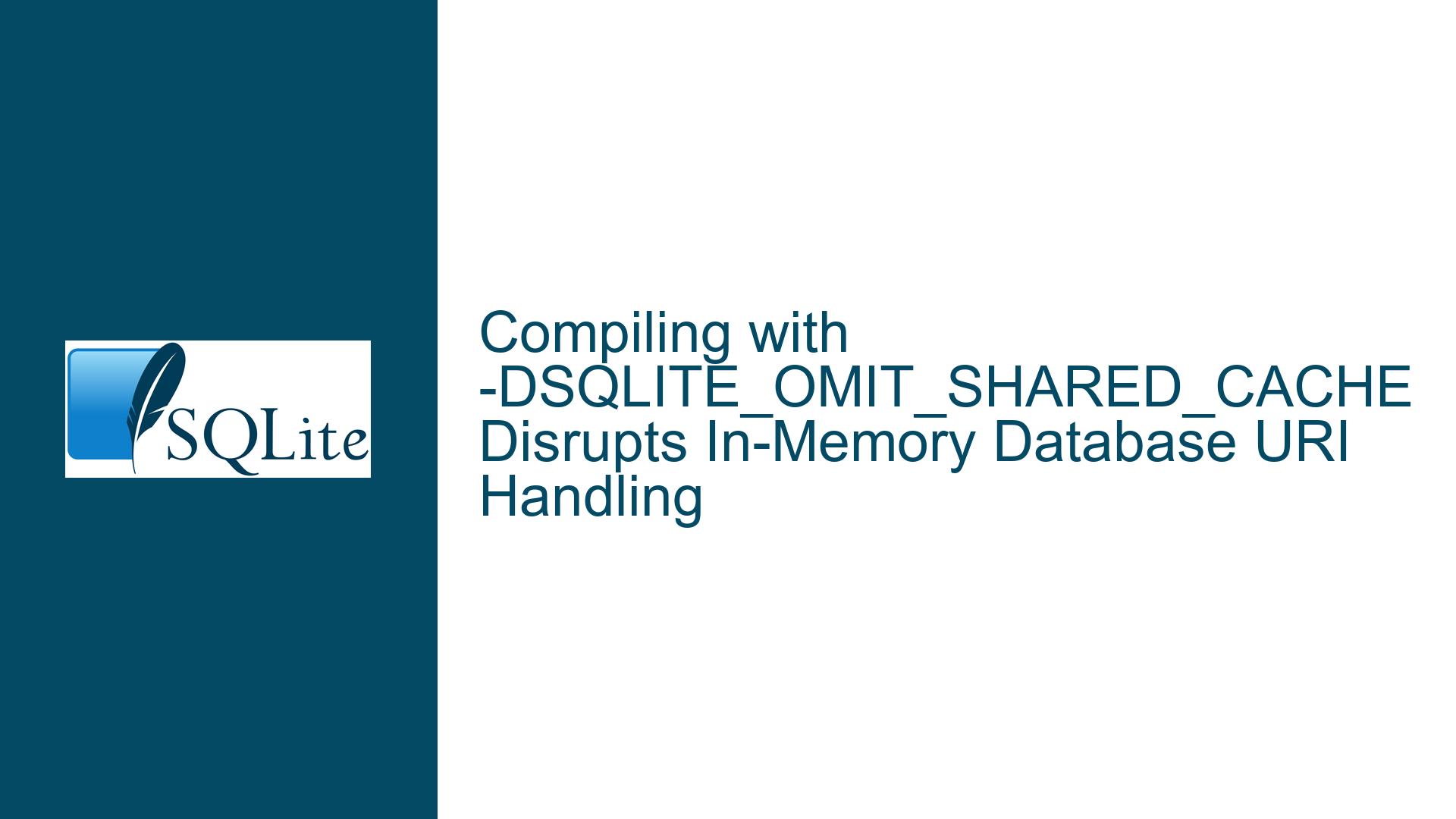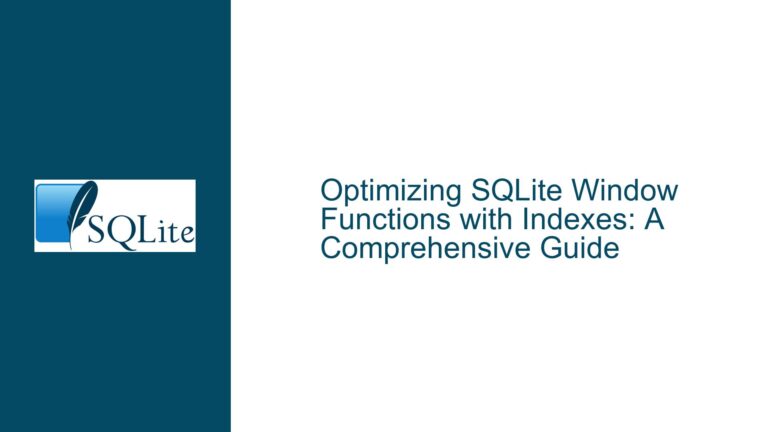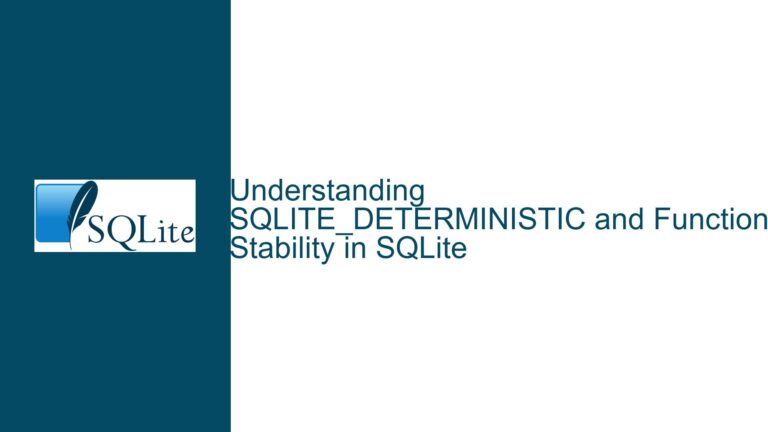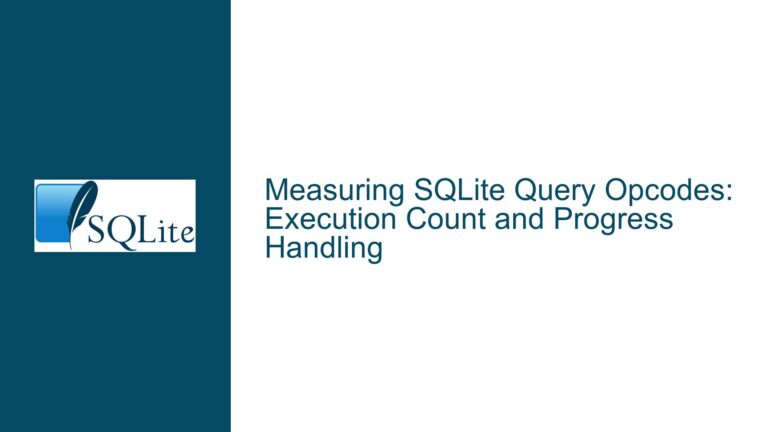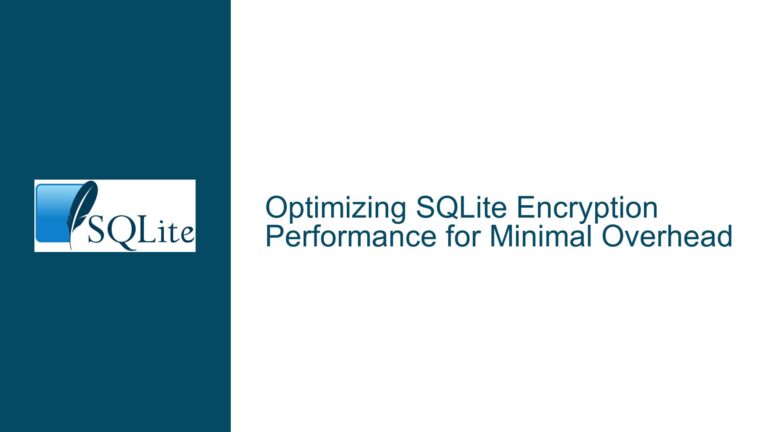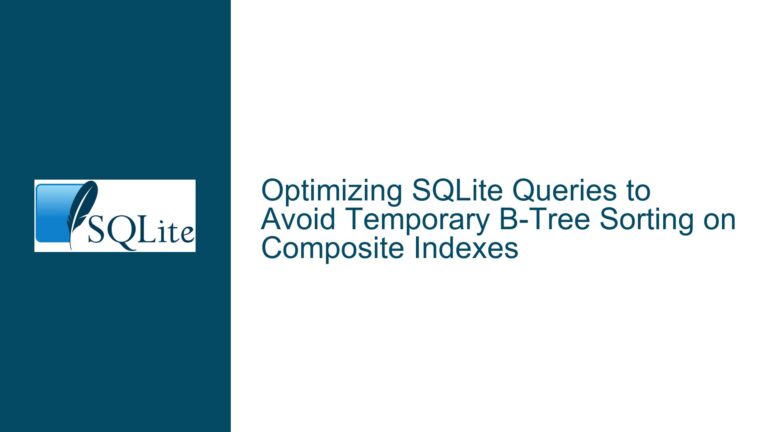Compiling with -DSQLITE_OMIT_SHARED_CACHE Disrupts In-Memory Database URI Handling
Shared In-Memory Database URI Parsing Conflicts When -DSQLITE_OMIT_SHARED_CACHE Is Enabled
Issue Overview: URI-Based In-Memory Database Connections Fail to Isolate File and Memory Contexts
The core issue arises when compiling SQLite with the -DSQLITE_OMIT_SHARED_CACHE flag, which removes support for shared cache mode. This flag is often used to optimize binary size and performance by excluding features deemed unnecessary for specific applications. However, omitting shared cache introduces unexpected behavior in URI-based database connections that leverage in-memory databases. Specifically, the Tcl test pager2-3.1 fails with the error no such table: t1 when the flag is enabled, despite the test expecting this error. This contradiction suggests a deeper conflict between URI parameter parsing and the absence of shared cache functionality.
The pager2-3.1 test evaluates whether shared in-memory databases operate correctly. It creates three connections:
db1anddb2connect via URIs specifyingmode=memoryandcache=shared, intending to share an in-memory instance namedtest.db.db3connects totest.dbas a conventional file-based database.
The test logic expects db3 to fail when inserting into t1 because t1 exists only in the shared in-memory database, not in the file. However, when -DSQLITE_OMIT_SHARED_CACHE is active, the test reports a failure even though the error message matches expectations. This indicates that the test’s assumptions about database isolation are violated: the error occurs for reasons unrelated to the intended scenario.
The root cause lies in how URI parameters like mode=memory and cache=shared are parsed and enforced when shared cache support is excluded. Without shared cache, SQLite either ignores or misinterprets these parameters, leading to unintended interactions between in-memory and file-based connections.
Possible Causes: Misalignment Between URI Parameter Handling and Shared Cache Compilation Flags
1. URI Parsing Logic Dependency on Shared Cache Components
The SQLite codebase may tightly couple URI parameter handling (e.g., mode=memory, cache=shared) with shared cache infrastructure. When -DSQLITE_OMIT_SHARED_CACHE excludes shared cache code, critical URI parsing branches are removed or disabled. For example:
- The
cache=sharedparameter might be silently ignored, causingmode=memoryto default to unshared in-memory databases. - The
mode=memoryparameter itself might be mishandled, leading connections to open file-based databases even whenmode=memoryis specified.
2. Incorrect Isolation of In-Memory and File-Based Databases
Without shared cache support, SQLite may fail to distinguish between in-memory and file-based connections when URIs are used. For instance:
db1anddb2might inadvertently open separate in-memory databases instead of sharing one, causingdb2to fail when inserting intot1.db3might connect to the same in-memory database asdb1anddb2(due to URI misinterpretation), allowing it to seet1and violate test expectations.
3. Ambiguity in URI Parameter Precedence
The mode=memory parameter could be overridden by other URI components or compilation flags. For example:
- If
cache=sharedis ignored,mode=memorymight default to a non-shared in-memory database, but the absence of shared cache support could force it to use a file-based database instead. - The
file:schema in URIs might take precedence overmode=memory, causing connections to resolve to file paths even when in-memory mode is requested.
Troubleshooting Steps, Solutions & Fixes: Aligning URI Handling with Shared Cache Exclusion
Step 1: Diagnose URI Parameter Enforcement Under -DSQLITE_OMIT_SHARED_CACHE
- Inspect URI Parsing Logic: Review SQLite’s
uri.cor related modules to identify dependencies betweencache=shared/mode=memoryhandling and shared cache code. Look for preprocessor directives (#ifdef SQLITE_OMIT_SHARED_CACHE) that disable critical branches. - Test URI Parameter Isolation: Manually verify that
mode=memorycreates a true in-memory database when-DSQLITE_OMIT_SHARED_CACHEis active. Use a debugger or logging to track database resolution paths.
Step 2: Decouple URI Parameter Handling from Shared Cache Dependencies
- Refactor URI Parsing: Modify SQLite’s URI parsing logic to treat
mode=memoryas a standalone directive, independent of shared cache support. Ensuremode=memoryforces an in-memory database even whencache=sharedis omitted. - Adjust Default Behaviors: If
cache=sharedis omitted, explicitly disable shared caching for in-memory databases without affectingmode=memoryenforcement. For example:#ifdef SQLITE_OMIT_SHARED_CACHE #define IS_SHARED_CACHE_ENABLED 0 #else #define IS_SHARED_CACHE_ENABLED (sqlite3GlobalConfig.sharedCacheEnabled) #endif - Update Documentation: Clarify that
mode=memoryremains valid even when shared cache is disabled, butcache=sharedhas no effect.
Step 3: Validate Database Isolation and Error Conditions
- Test In-Memory Isolation: Ensure
db1anddb2open separate in-memory databases whencache=sharedis omitted. Verify thatdb3connects to a file-based database and cannot accesst1. - Enforce Expected Errors: Confirm that
db3fails withno such table: t1because it accesses a separate database, not due to misconfigured URI parameters. Usesqlite3_db_configor logging to trace database handles.
Step 4: Apply Fixes from SQLite’s Official Repository
The SQLite team addressed this issue in check-in a77c8a780f884d0c, which likely decouples mode=memory from shared cache dependencies. To apply this fix:
- Merge Code Changes: Integrate the fix into your codebase, focusing on URI parsing and in-memory database initialization.
- Recompile and Retest: Rebuild SQLite with
-DSQLITE_OMIT_SHARED_CACHEand rerun thepager2-3.1test to confirm it passes or is skipped appropriately.
Final Solution: Ensure URI Parameters Correctly Enforce Database Modes
The ultimate resolution involves ensuring that mode=memory and cache=shared are parsed and enforced independently. Shared cache exclusion should not alter the fundamental behavior of mode=memory, preserving the isolation between in-memory and file-based databases required by tests like pager2-3.1. By refactoring URI handling to avoid implicit dependencies on shared cache code, SQLite maintains consistent behavior across compilation configurations.
